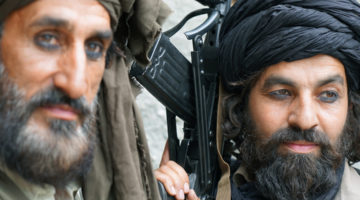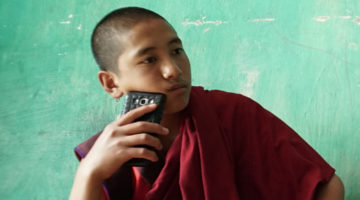Jesse Wente: A Real Mann’s Man
With Neon Nights: The films of Michael Mann set to open at the TIFF Bell Lightbox on February 5th, and set to run through Public Enemies on March 26th, it seemed like a great time to chat with the retrospective’s programmer, Director of Film Programmes at TIFF Bell Lightbox, Jesse Wente. The trouble was that Wente, freshly returned from Sundance in Park City, Utah, was on his way to Berlinale that day. Graciously, Wente was able to make the time, and because of that, we have a real appreciation for the retrospective for a director that is not given proper credit as a true stylist, and
 Why is the time right for a Michael Mann retrospective?
Why is the time right for a Michael Mann retrospective?
“I’ve been a big fan of his work for a very long time. Whenever you have a master filmmaker, not unlike Hou Hsaio-Hsien, who also has a new film coming out later this year, Mann is a filmmaker who fits really well into what the Cinematheque is trying to do, in terms of its programming. We’ve never done a Mann retrospective at the TIFF Cinematheque, so it was just a matter of time”.
What do you mean that Mann’s films are about masculinity?
“The films really defined masculinity in the eighties, (as well as his TV work in the seventies and eighties). They really laid out a rigid structure of male behaviour and what it is, sort of, to be a man. It’s not always…I don’t think he’s sort of kind to men in his movies. They generally end up worse by the end of the film. They usually have to choose between happy home life and their profession. They almost one hundred percent choose the profession, but they are usually tortured for the choice of the profession, often risking physical harm: think of Manhunter (starring William Petersen as profiler Will Graham, a character not too far removed from Gus Grissom in CSI) or Thief (James Caan’s career criminal Frank), Heat (Al Pacino’s explosive Lt. Hanna, or perhaps Jesse was even referring to Robert DeNiro’s Neil McCauley), they’re not just risking their own happiness, they’re actually risking (laughing) the lives of those they seem to want to care about”.
What is a major influence of Michael Mann’s?
“A lot of the men in his movies are very much reflections of what he saw growing up, and it is a lifelong interest for Michael Mann (criminals and cops). This has been his core interest almost since he started. In his films, there is often a depiction of Criminality versus a Figure of Justice. In Mann’s films though, the dividing line is pretty translucent. In Heat, that diner scene, the first meeting between DeNiro and Pacino, (by the way, their first ever together in filmic history), was an actual event. They actually had a meeting in a diner where they discussed these circumstances, (interestingly, a diner scene between Tuesday Weld’s Jessie and James Caan’s Frank is also a pivotal turning point in Thief). The event that was presented to Mann really became his cinematic thesis for the next fifteen or twenty years.
So there is a certain morality that runs throughout Mann’s films?
What Mann is saying, ultimately, is that it’s the razor thin choices that separate people, and from a moral standpoint, there isn’t actually that much difference there, and they’re often looking at reflections, or mirror images of themselves (think of Will Graham and Hannibal Lecktor, portrayed in Manhunter by Brian Cox) when they’re looking across from each other, and I think that interplay between a criminal and a cop is really the primary source or inspirational source for Mann”.
What about after his masterpiece Heat?
“By the time we get to The Insider or Ali, it’s still that dynamic: someone on the outer edge competing with someone who’s the mainstream and finding out there’s not that much difference, which is why I think the films take on a certain bleakness and a spareness, so even though they’re literally all glitter and lights, and there’s a presence of glamour, he is ultimately a guy, like so many filmmakers, like Martin Scorsese, who ultimately have spent most of their careers making movies about what they saw as children, and that continues to be to what they come back, no matter the milieu of the film itself.
Wente went out of his way to mention that Jennifer Kent’s The Babadook is opening at the Lightbox in March, and that is worth checking out, as well as the retrospectives of Hou Hsiao-Hsien and Alex de la Iglesia paralleling in some surprising ways. He also touched on Ball of Fire: The Films of Barbara Stanwyck, as well as a fascinating slate during March Break, digging into the Disney vault.








